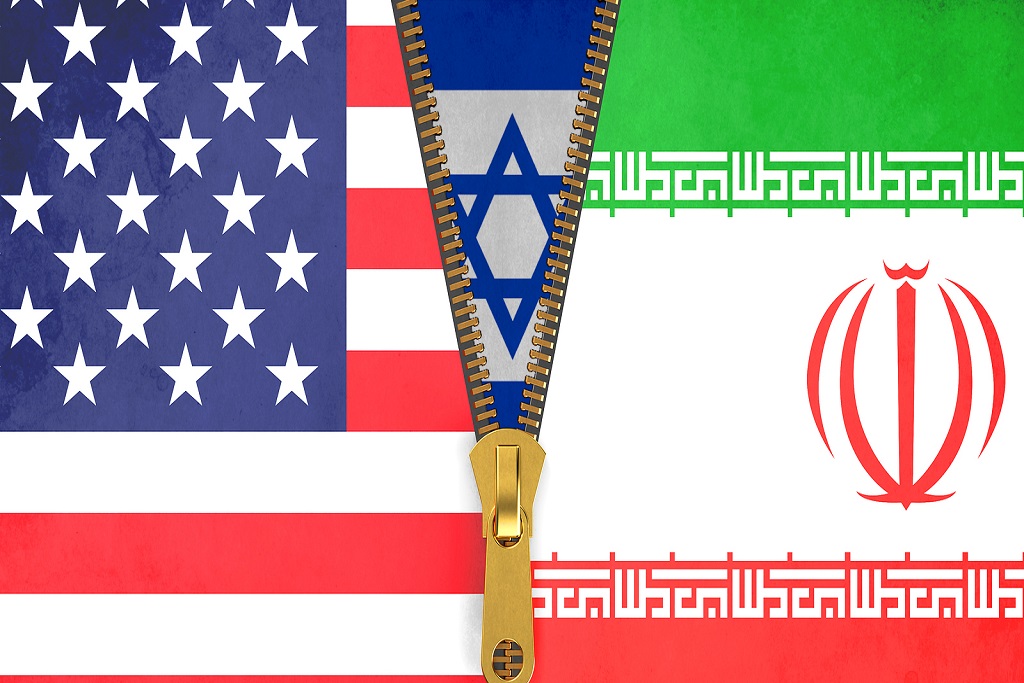At a time when, from the Israeli point of view, Iran is very close to a nuclear threshold, the United States lacks credible and effective leverage and pressure options to push Iran back from its nuclear project.
Faraan Zionist Research Base;
On September, 2019, when Saudi Arabia was attacked with drones and cruise missiles, Trump openly said: “This was an attack on Saudi Arabia, not the United States. So there was no need for an American response.”
The Quincy Institute [1] has concluded in its reports that Iran and the Axis of Resistance would not be a threat in the region without the US military presence. So you have to withdraw the US troops to make the world safer.
Of course, it is likely that the Biden administration will not leave other parts of the Middle East in the near future due to the inappropriate and harmful way in which the United States withdrew from Afghanistan. Withdrawal from Afghanistan sent a message of weakness to the American and allied public opinion in the region, so another exit will reinforce this image and sharply increase criticism of the Biden government.
On the other hand, Israel, which opposes the completion of Iran’s nuclear industry and missile project and regional influence, and in accordance with the Menachem Begin doctrine, should not allow access to nuclear weapons by any country in the region. But Israel now considers Iran very close to the brink of nuclearization and estimates Iran’s time for a nuclear escape in a few weeks, so from the Israeli point of view, time is very sensitive. However, in these critical circumstances, the United States is not even willing to announce that a military option against Iran is on the table if the nuclear talks stall.
The Israelis believe that during the three previous US presidents, only the economic option and extensive US sanctions were used against Iran, and now this economic lever and the comprehensive option and sanctions have lost their effectiveness and have been eroded. Likewise, these sanctions no longer put the necessary pressure for the purpose of making Iran retreat from completing the nuclear industry.
The Bennett administration is trying to distance itself from Netanyahu’s approach to the Iran-P5 + 1 nuclear talks, arguing that the Trump administration’s withdrawal from the Iran deal has led to the current situation and has weakened the monitoring and restrictions on the nuclear industry and the United States has lacked effective leverage to deal with Iran.
Therefore, the Bennett administration does not oppose the revival of the Iran deal by the United States, but wants more pressure and an alternative plan (B and C) for the scenario of the failure of the nuclear talks. The Israelis believe that the United States should seriously consider the military option against Iran and make it credible so that Iran can withdraw from its nuclear activities.
In this regard, the Bennett administration believes in maintaining and strengthening the strategic dialogue with the Biden administration, but given the new US strategy, which is based on reducing the military presence in the Middle East and avoiding military intervention in the region, even the announcement of a military option by the Americans will not be considered to be serious.
Conclusion
The Zionist regime is trying to adapt to the changed conditions after the new US administration led by Biden came to power, but in the meantime, it faces two series of internal and external obstacles.
The Naftali Bennett’s government faces serious internal challenges, the most important of which are:
– The weak and fragile government of the Zionist regime (named change)
– The presence of a Palestinian party in the Coalition for Change (RAM)
– Serious differences between the right and left parties of the Coalition for Change in the Palestinian issue.
– Netanyahu’s attempt to return to power
Given the above challenges facing the Bennett government, the process of adapting to the Biden government will face serious problems.
Nonetheless, one of the most important problems in reconciling the Bennett administration with the Biden administration will be the Iranian nuclear issue.
At a time when, from the Israeli point of view, Iran is very close to a nuclear threshold, the United States lacks credible and effective leverage and pressure options to push Iran back from its nuclear project. Therefore, the Israelis believe that in this sensitive situation, only a credible military option will be able to force Iran to withdraw from its nuclear progress, while the United States is not even willing to announce that a military option is on the table if the nuclear talks fail. This is the bone of contention between the Bennett administration and the new US administration led by Biden. Importantly, this matter will be one of the issues used to attack and confront the Bennett’s administration by the domestic opposition led by Netanyahu.
During several meetings with the US officials, Israeli officials have called for an alternative US plan for a failed scenario. However, due to the serious and strategic unwillingness of the United States not to intervene militarily in the Middle East and reduce the military presence in the region, no results have been achieved so far. And even if the US announces that a military option is on the table in the event of a stalemate in the nuclear talks, this leverage is unlikely to be taken seriously by Iran.










